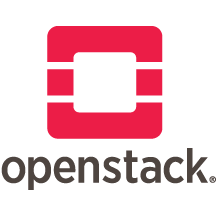Difference between revisions of "Main Page"
m (Correct the software name and URL protocol for our paste service) |
|||
| (114 intermediate revisions by 13 users not shown) | |||
| Line 1: | Line 1: | ||
| − | + | <div id="mf-index"> | |
| − | + | <table border=0 width=100% cellpadding=15><tr><td width=25% align=center> | |
| + | [[File:Openstack-vertical-small.png]] | ||
| + | </td><td> | ||
| + | == Welcome to the OpenStack wiki == | ||
| + | The OpenStack Mission is to produce a ubiquitous Open Source Cloud Computing platform that is easy to use, simple to implement, interoperable between deployments, works well at all scales, and meets the needs of users and operators of both public and private clouds. | ||
| − | + | OpenStack is '''[http://docs.openstack.org/project-team-guide/open-source.html open source]''', '''[http://docs.openstack.org/project-team-guide/open-design.html openly designed]''', '''[http://docs.openstack.org/project-team-guide/open-development.html openly developed]''' by an '''[http://docs.openstack.org/project-team-guide/open-community.html open community]'''. | |
| − | |||
| − | |||
| − | + | The '''OpenStack wiki''' is a collaboration tool for the community to publish various documents in a collaborative manner. Content may be out of date or inaccurate. Please refer primarily to other OpenStack websites for reference information (see below). | |
| − | + | </td></tr> | |
| − | + | </table> | |
| − | + | ---- | |
| − | + | <table border=0 width=100%> | |
| − | + | <tr valign=top><td width=50%> | |
| − | + | ==== Help in using the wiki ==== | |
| − | + | * '''[[How_To_Use_The_Wiki|How to use this wiki]]''' | |
| − | + | * Learn [https://www.mediawiki.org/wiki/Help:Formatting Wiki markup] | |
| − | + | * [https://www.mediawiki.org/wiki/Help:Editing_pages Editing pages] | |
| − | + | * [https://www.mediawiki.org/wiki/Help:Tracking_changes Tracking changes] and setting up a [https://www.mediawiki.org/wiki/Help:Watchlist Watchlist] | |
| − | + | * Interested in quick collaborative editing? Try out [https://etherpad.openstack.org Etherpad] | |
| − | + | * In need of a collaborative spreadsheet? Try out [https://ethercalc.openstack.org Ethercalc] | |
| − | + | * Looking to paste and link arbitrary text? Try out [http://paste.openstack.org LodgeIt] | |
| − | + | </td><td width=50%> | |
| − | + | ==== Links ==== | |
| − | + | * [https://www.openstack.org/ OpenStack main website] | |
| − | + | * [https://releases.openstack.org/ OpenStack releases] | |
| − | + | * [https://git.openstack.org/cgit Source code] | |
| − | + | * [https://docs.openstack.org/ Documentation] | |
| − | + | * '''[https://www.openstack.org/community How to contribute]''' | |
| − | + | * [https://governance.openstack.org/ Project governance] | |
| − | + | * Links from the [[Old_Main_Page|previous version of this wiki main page]] | |
| − | + | </td></tr></table> | |
| − | [ | + | __NOTOC__ |
| − | + | __NOEDITSECTION__ | |
| − | // | + | </div> |
| − | |||
| − | |||
| − | // | ||
| − | |||
| − | |||
| − | |||
| − | |||
| − | |||
| − | |||
| − | [ | ||
| − | |||
| − | |||
| − | |||
| − | |||
| − | : | ||
| − | |||
| − | |||
| − | |||
| − | |||
| − | |||
| − | |||
| − | |||
| − | |||
| − | |||
| − | |||
| − | |||
| − | |||
| − | </ | ||
| − | |||
| − | |||
| − | |||
| − | |||
| − | // | ||
| − | |||
| − | |||
| − | |||
| − | |||
| − | |||
| − | |||
| − | // | ||
| − | |||
| − | |||
| − | |||
| − | |||
| − | // | ||
| − | |||
| − | |||
| − | |||
| − | |||
| − | |||
| − | |||
| − | |||
| − | |||
| − | |||
| − | |||
| − | |||
| − | |||
| − | |||
| − | |||
| − | |||
| − | // | ||
| − | |||
| − | |||
| − | |||
| − | |||
| − | |||
| − | |||
| − | |||
| − | |||
| − | |||
| − | |||
| − | |||
| − | |||
| − | |||
| − | |||
| − | |||
| − | |||
| − | |||
| − | |||
| − | |||
| − | |||
| − | |||
| − | |||
| − | |||
| − | |||
| − | |||
Latest revision as of 16:39, 21 March 2018
Welcome to the OpenStack wikiThe OpenStack Mission is to produce a ubiquitous Open Source Cloud Computing platform that is easy to use, simple to implement, interoperable between deployments, works well at all scales, and meets the needs of users and operators of both public and private clouds. OpenStack is open source, openly designed, openly developed by an open community. The OpenStack wiki is a collaboration tool for the community to publish various documents in a collaborative manner. Content may be out of date or inaccurate. Please refer primarily to other OpenStack websites for reference information (see below). |
Help in using the wiki
|
Links |

